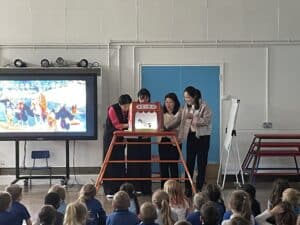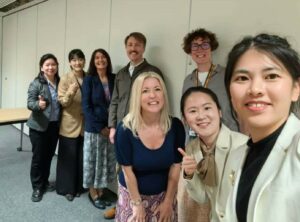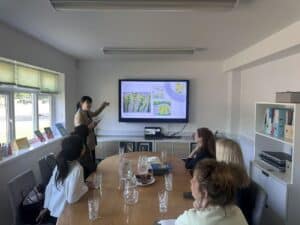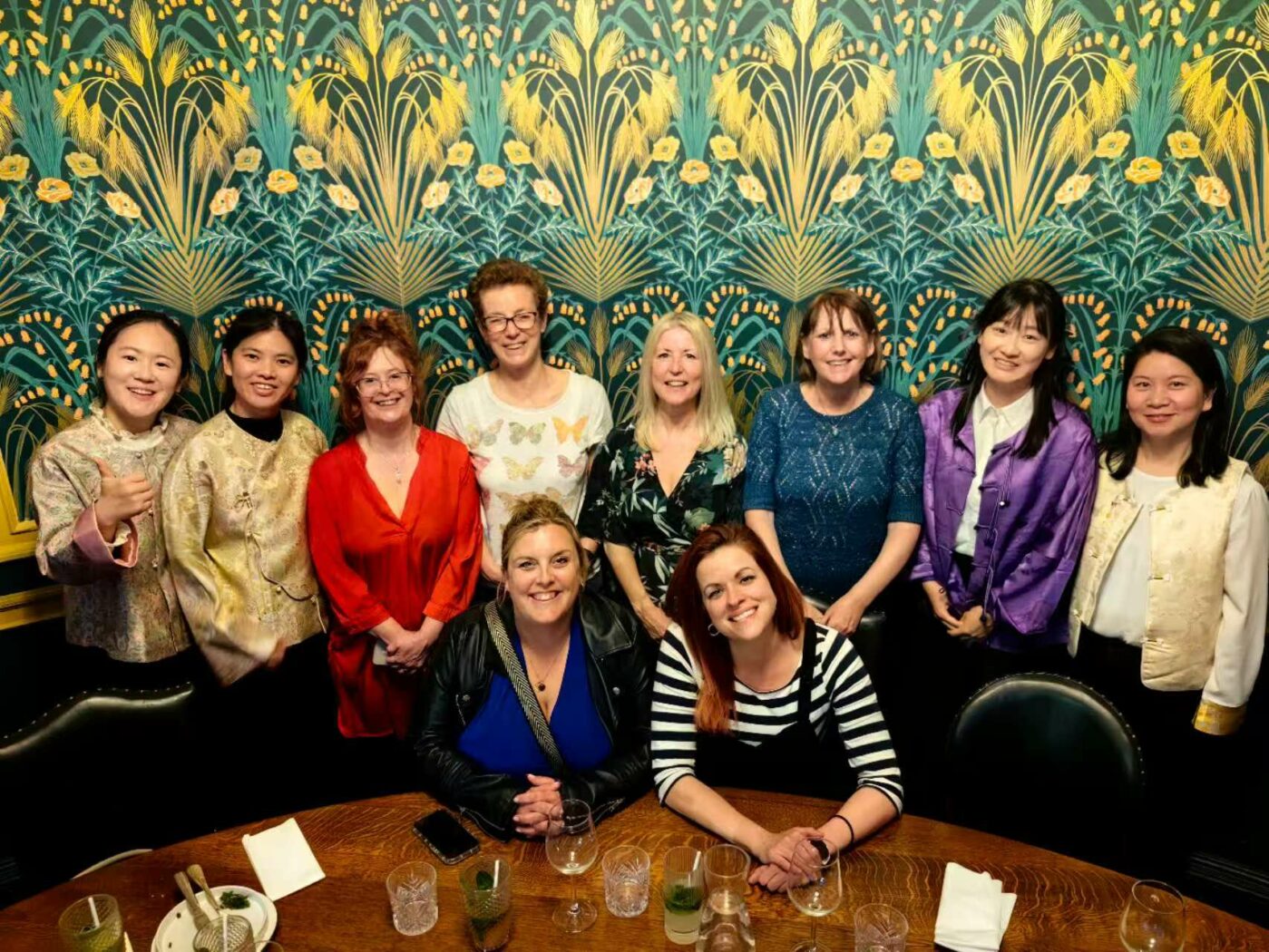For the first time since covid, we were delighted to welcome a group of teachers from our collaborative base at Wu Nan Kindergarten in Shanghai. Vice principle, Yin Jiani and teachers Wang Jiayi, Shen Wenjie and Shi Ying joined us in Norwich to visit schools and join discussions on education provision and of course, SAW project development!

Headteacher Jade Hunter from West Earlham Infant School hosted the group for a day where they got to observe numeracy and literacy lessons in action. They enjoyed a tour around the nursery and the special provision area for SEND children.
As a treat for the children, the group performed a Shadow Theatre play, a paper-cutting demonstration and some songs with a traditional Chinese clay pipe known as a Xun with singing, which the children joined in with.
At West Earlham Junior school, headteacher Catrin Eyers invited the teachers to sit in on a Mandarin lesson with a year 5 class. The children did a great job showing off their grasp of the Chinese language, something all children at this school have the opportunity to learn. Catrin and Jade were delighted when the group gifted a shadow theatre to each school for the staff and students to enjoy using!

As part of the visit, we hosted a meeting to explore the use of AI in the curriculum with colleagues Professor John Gordon (Creative UEA Academic Chair), Professor Helen Steward (Computing Sciences Primary Specialist) and Professor Deirdre Medler (Director of EDU Schools Partnerships) from the University of East Anglia. John is leading a large study on the enactment of teacher agency with technology for teaching and learning (https://etat.uea.ac.uk/ ) so it was fascinating to discuss and compare how the Chinese and UK education systems are integrating new technologies into the education system.
A highlight of the week was the SAW sharing session where the teachers presented some of the SAW projects they have designed and run in Shanghai, China. Inspired by our Lunchbox Science projects they have incorporated traditional Chinese foods like baozi (steamed buns), fermented bean curd, and rice wine into activities, connecting them with children’s daily diets.

The SAW team in Shanghai are keen to develop projects based on questions posed by the children and one such example sprang from children’s interest in a bird nesting at the school. They were keen to know “What kind of bird is this?”, “Why do birds have pointed beaks?” “Is this the mummy or daddy bird?” and the most common question—“Why can birds fly?”. This led them to invite an ornithologist to join a SAW activity exploring the secrets of flight.
One of the plants studied here at our base at the John Innes Centre in Norwich, is Rapeseed, so we were amazed to find that the teachers in Shanghai had developed a SAW project themed on Rapeseed Oil. This is one we can’t wait to try out in Norfolk schools!
Cultivate inquiry through the fusion of art and science
We are thrilled to be able to say that the SAW project is now being promoted district-wide by The Xuhui Wu Nan Education Group (now comprising of 10 kindergartens) as a cornerstone of science education. Notably, Xuhui Education has designated “scientist spirit” as a regional priority, aligning perfectly with SAW’s mission to “cultivate inquiry through the fusion of art and science.” They have also introduced SAW to parents during monthly open-house events to foster home-school collaboration, which we think is a lovely idea.
We concluded the visit with a dinner at the Cosy Club where we were joined by Chair of the SAW Trust, Professor Anne Osbourn and SAW Trustee Alison Randall.
We hope to connect with our colleagues in Shanghai again soon!

